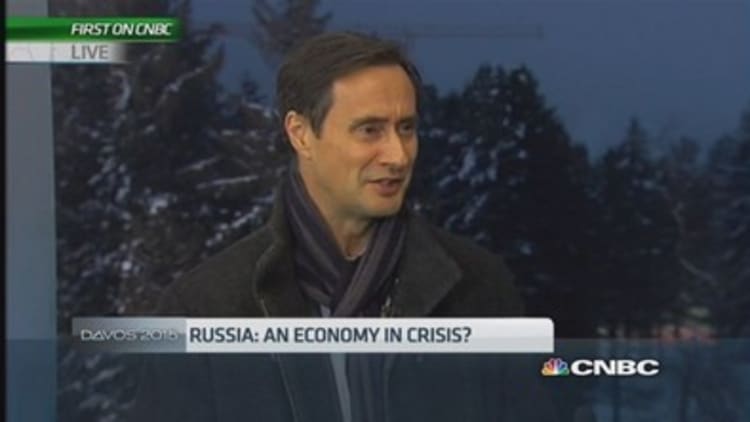Ukraine's new finance minister, Natalie Jaresko, said that plans were underway to broaden the country's tax base by increasing taxes on the wealthy and eliminating certain loopholes to make sure businesses pay their share.
She outlined the plan in a conference call on Tuesday to update the media, politicos and experts on the situation in her country as war with rebels rages on.
On the call, Jaresko outlined three major challenges to Ukraine's stability: The ongoing war, the recession and the "results of post-revolutionary society."
The tax proposal already has vocal critics.
Robert Bensh, an American energy expert and managing director and partner with Pelicourt LLC, a private equity firm focused on energy and natural resources in Ukraine, said that Ukraine's new reforms are hindering any potential investment in that sector.

Bensh said that new tax increases, particularly on private companies operating in Ukraine, will be disastrous for private gas investors, especially at a time when Ukraine is trying to rely less on Russia.
Read More
Jaresko told CNBC that Ukraine is committed to looking through and working with the private industry as well as the International Monetary Fund (IMF) to identify a royalty scheme that would "satisfy our fiscal and investment needs."
"We have committed the first half of this year to work through new model of royalties," she said.
The talk of reform comes as more than 5,000 people have already been killed in the conflict between Russia and Ukraine.
"The greatest burden is on the backs of the Ukrainian people," Jeresko said.
Read MorePutin on track to nationalize companies: Critic
Jaresko mentioned that talks were still underway with the IMF in terms of receiving additional funding to avert a default.
She said those discussions should be complete in the next few days and that the focus would be staying afloat over the next 12-15 months.
Though she said the conversations have not begun yet, she hopes to initiate consultations with sovereign debt holders, as well.
Matthew Rojansky, director of the Kennan Institute at the Wilson Center, told CNBC that Ukraine can salvage its economy by enforcing a flat tax rate and enacting criminal penalties for concealing real assets and income.
"Oligarchs never own anything on paper," he said.
Read MoreUkraine President: This 'terrorism' needs to stop
Jaresko addressed corruption on the conference call as well, saying that efforts to fight it are critical to the state's legitimacy. She said that an anti-corruption bureau has been created and fully funded in the 2015 budget.
She hoped her private business background (she co-founded and served as CEO and managing partner of Horizon Capital) would help her battle the country's corruption and a recession that has been ongoing since 2012.
Rojansky added that Ukraine needs "big ($50 billion over a year or two) credit from the West to restart private lending."
Ian Brzezinski, senior fellow at the Atlantic Council and principal at the Brzezinski Group, said it will take a lot more than the IMF and West can provide to improve Ukraine's financial reality.
"Even with billions of dollars of assistance, it will be difficult for Ukraine to leverage the potential of these loans grants while enduring an invasion and the political subterfuge and economic pressure imposed upon it by Russia," Brzezinski told CNBC.
"At best this assistance will be a tourniquet that will help Ukraine survive this onslaught."


